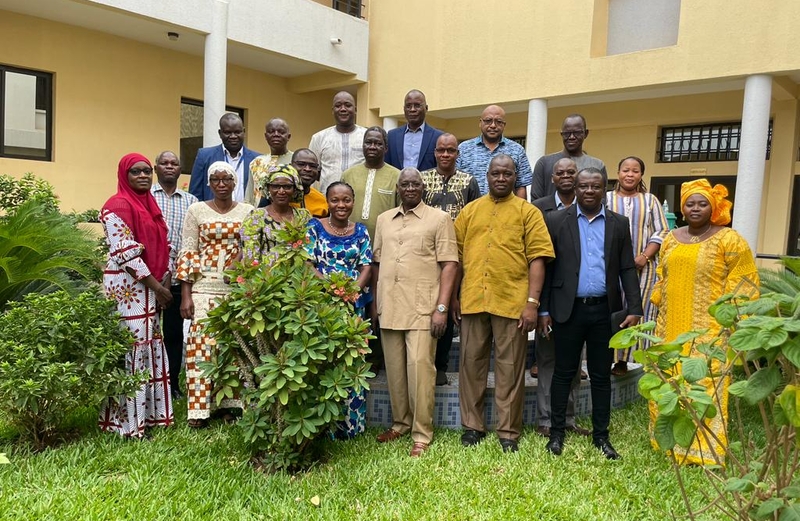Genome Editing at center of discussions in Burkina Faso

The African Union, through its High-Level Panel on Emerging Technologies (APET) recommends the use of emerging technologies such as genome editing to help solve hunger and malnutrition issues on the continent. In this regard, the National Biosafety Agency (ANB ) of Burkina Faso In partnership with AUDA-NEPAD ABNE, held a technical workshop to review and validate the country guidelines on Genome Editing and to update the regulatory processes for GM crop varieties approval and registration. The workshop was held from 15 – 17 May 2023 in Ouagadougou, Burkina Faso.
Genome editing is an emerging and affordable biotechnology tool that holds great promise to deliver high-yielding crop varieties that withstand various stresses such as droughts, floods, insect pests, or diseases and that possess quality traits for use as food, feed, or for processing. Very few countries in Africa, namely Malawi, Kenya, Ethiopia, and Nigeria, have produced guidelines that help regulate genome-edited crops that would facilitate the in-country development or the introduction, testing, and commercialization of genome-edited crop varieties developed elsewhere.
The meeting brought together stakeholders from relevant institutions including the National Agriculture Research Institute (INERA), ANB, the Biosafety Scientific and Technical Advisory Committee, the Ministry of Agriculture, the National Variety Registration Committee, and the Ministry of Environment.
In his opening remarks, Mr Samuel Timpo, Head of ABNE, highlighted the importance of having functional regulatory guidelines for emerging technologies such as Genome Editing. This technology has proven to be more precise, effective and more affordable to African researchers than the usual modern biotechnologies. Hence the importance for the continent to put in place necessary regulatory frameworks which will enable African countries to safely harness the opportunities arising from genome editing for their development.
The Director General of ANB, Dr Oumar Traoré highlighted that since the start of the debate on genome editing, Burkina Faso’s researchers have been keen to add this innovative tool to their technological toolbox to help develop and improve crop varieties in order for the country to meet its food and nutrition needs.
AUDA-NEPAD advocates for the use of any relevant technological tool that may help enhance crop productivity, and improve food security and nutrition in Africa. . This stance is aligned to the African Union’s Agenda 2063 vision’s Aspiration 1which envisions “a prosperous Africa based on inclusive growth and sustainable development, and Goal Number 5 in particular, which targets “Modern agriculture for increased productivity and production.”



